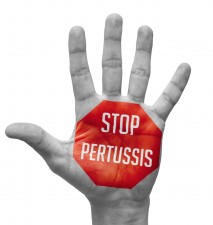Here's the hard truth: Not all vaccines are created equal.
The immunizations for measles and rubella work close to 100 percent of the time, delivering a high level of protection for more than 20 years. On the other hand, some vaccines are only effective for a few years, at most, like the flu shot, which is only available in a seasonal form. And there are other vaccines that suffer lost efficacy over time, like the pertussis jab.
The pertussis or whooping cough vaccine is very effective in its first year, with a recent analysis finding its efficacy during that period to be around 75 percent. However, within four years the vaccine's efficacy plummets to about 34 percent. Another analysis found the efficacy varied with the age of the recipient, with the shot being more effective for infants than adolescents.
Some immunity is certainly better than no immunity, so the waning efficacy of the vaccine is not a reason to forgo getting the pertussis shot (which is usually as part of a vaccine that contains protection against tetanus and diphtheria, too).
However, the imperfect nature of the vaccine means physicians need to have an effective way to treat the causative bacteria and a new study shows they may soon have a novel drug to do just that.
Pertussis is an infection caused by the bacteria Bordatella pertussis, and like all bacterial infections it is developing resistance to antibiotics. Resistance to antibiotics and a less-than-ideal vaccine make a worrisome combination for treating this infection, which makes this new drug a welcome development.
The drug, recently described in Science Translational Medicine, is an antibody therapy that targets the toxin that is a vital virulence factor for the bacteria. The toxin named pertussis toxin actively works to dampen the normal innate immune response that is require to mount a response to the bacteria. The toxin also causes uncontrolled proliferation of white blood cells, which is associated with pulmonary hypertension.
The researchers created antibodies and used them to treat pertussis in a primate model. They found that, compared to controls, treated subjects did not experience the dangerous white blood cell proliferation the toxin causes. Furthermore, treated subjects experience a significantly quicker clearance of bacteria.
The results are still preliminary, but promising for future treatment of this infection. It also follows a recent trend of targeting the toxins, and not the bacteria. Researchers recently reported success with treating Clostridium difficile infection.



